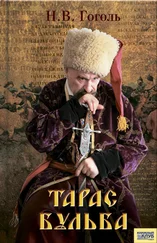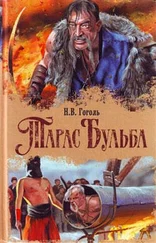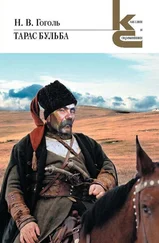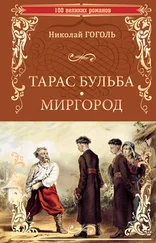| The executioner tore off his old rags; they fastened his hands and feet in stocks prepared expressly, and-We will not pain the reader with a picture of the hellish tortures which would make his hair rise upright on his head. |
Палач сдернул с него ветхие лохмотья; ему увязали руки и ноги в нарочно сделанные станки, и... Не будем смущать читателей картиною адских мук, от которых дыбом поднялись бы их волоса. |
| They were the outcome of that coarse, wild age, when men still led a life of warfare which hardened their souls until no sense of humanity was left in them. |
Они были порождение тогдашнего грубого, свирепого века, когда человек вел еще кровавую жизнь одних воинских подвигов и закалился в ней душою, не чуя человечества. |
| In vain did some, not many, in that age make a stand against such terrible measures. |
Напрасно некоторые, немногие, бывшие исключениями из века, являлись противниками сих ужасных мер. |
| In vain did the king and many nobles, enlightened in mind and spirit, demonstrate that such severity of punishment could but fan the flame of vengeance in the Cossack nation. |
Напрасно король и многие рыцари, просветленные умом и душой, представляли, что подобная жестокость наказаний может только разжечь мщение козацкой нации. |
| But the power of the king, and the opinion of the wise, was as nothing before the savage will of the magnates of the kingdom, who, by their thoughtlessness and unconquerable lack of all far-sighted policy, their childish self-love and miserable pride, converted the Diet into the mockery of a government. |
Но власть короля и умных мнений была ничто перед беспорядком и дерзкой волею государственных магнатов, которые своею необдуманностью, непостижимым отсутствием всякой дальновидности, детским самолюбием и ничтожною гордостью превратили сейм в сатиру на правление. |
| Ostap endured the torture like a giant. |
Остап выносил терзания и пытки, как исполин. |
| Not a cry, not a groan, was heard. Even when they began to break the bones in his hands and feet, when, amid the death-like stillness of the crowd, the horrible cracking was audible to the most distant spectators; when even his tormentors turned aside their eyes, nothing like a groan escaped his lips, nor did his face quiver. |
Ни крика, ни стону не было слышно даже тогда, когда стали перебивать ему на руках и ногах кости, когда ужасный хряск их послышался среди мертвой толпы отдаленными зрителями, когда панянки отворотили глаза свои, - ничто, похожее на стон, не вырвалось из уст его, не дрогнулось лицо его. |
| Taras stood in the crowd with bowed head; and, raising his eyes proudly at that moment, he said, approvingly, |
Тарас стоял в толпе, потупив голову и в то же время гордо приподняв очи, и одобрительно только говорил: |
| "Well done, boy! well done!" |
"Добре, сынку, добре!" |
| But when they took him to the last deadly tortures, it seemed as though his strength were failing. |
Но когда подвели его к последним смертным мукам, - казалось, как будто стала подаваться его сила. |
| He cast his eyes around. O God! all strangers, all unknown faces! |
И повел он очами вокруг себя: боже, всё неведомые, всё чужие лица! |
| If only some of his relatives had been present at his death! |
Хоть бы кто-нибудь из близких присутствовал при его смерти! |
| He would not have cared to hear the sobs and anguish of his poor, weak mother, nor the unreasoning cries of a wife, tearing her hair and beating her white breast; but he would have liked to see a strong man who might refresh him with a word of wisdom, and cheer his end. |
Он не хотел бы слышать рыданий и сокрушения слабой матери или безумных воплей супруги, исторгающей волосы и биющей себя в белые груди; хотел бы он теперь увидеть твердого мужа, который бы разумным словом освежил его и утешил при кончине. |
| And his strength failed him, and he cried in the weakness of his soul, |
И упал он силою и воскликнул в душевной немощи: |
| "Father! where are you? do you hear?" |
- Батько! где ты! Слышишь ли ты? |
| "I hear!" rang through the universal silence, and those thousands of people shuddered in concert. |
- Слышу! - раздалось среди всеобщей тишины, и весь миллион народа в одно время вздрогнул. |
| A detachment of cavalry hastened to search through the throng of people. |
Часть военных всадников бросилась заботливо рассматривать толпы народа. |
| Yankel turned pale as death, and when the horsemen had got within a short distance of him, turned round in terror to look for Taras; but Taras was no longer beside him; every trace of him was lost. |
Янкель побледнел как смерть, и когда всадники немного отдалились от него, он со страхом оборотился назад, чтобы взглянуть на Тараса; но Тараса уже возле него не было: его и след простыл. |
| CHAPTER XII |
XII |
| They soon found traces of Taras. |
Отыскался след Тарасов. |
| An army of a hundred and twenty thousand Cossacks appeared on the frontier of the Ukraine. |
Сто двадцать тысяч козацкого войска показалось на границах Украйны. |
| This was no small detachment sallying forth for plunder or in pursuit of the Tatars. |
Это уже не была какая-нибудь малая часть или отряд, выступивший на добычу или на угон за татарами. |
| No: the whole nation had risen, for the measure of the people's patience was over-full; they had risen to avenge the disregard of their rights, the dishonourable humiliation of themselves, the insults to the faith of their fathers and their sacred customs, the outrages upon their church, the excesses of the foreign nobles, the disgraceful domination of the Jews on Christian soil, and all that had aroused and deepened the stern hatred of the Cossacks for a long time past. |
Нет, поднялась вся нация, ибо переполнилось терпение народа, - поднялась отмстить за посмеянье прав своих, за позорное унижение своих нравов, за оскорбление веры предков и святого обычая, за посрамление церквей, за бесчинства чужеземных панов, за угнетенье, за унию, за позорное владычество жидовства на христианской земле - за все, что копило и сугубило с давних времен суровую ненависть козаков. |
| Hetman Ostranitza, young, but firm in mind, led the vast Cossack force. |
Молодой, но сильный духом гетьман Остраница предводил всею несметною козацкою силою. |
| Beside him was seen his old and experienced friend and counsellor, Gunya. |
Возле был виден престарелый, опытный товарищ его и советник, Гуня. |
| Eight leaders led bands of twelve thousand men each. |
Восемь полковников вели двенадцатитысячные полки. |
| Two osauls and a bunchuzhniy assisted the hetman. |
Два генеральные есаула и генеральный бунчужный ехали вслед за гетьманом. |
| A cornet-general carried the chief standard, whilst many other banners and standards floated in the air; and the comrades of the staff bore the golden staff of the hetman, the symbol of his office. |
Г енеральный хорунжий предводил главное знамя; много других хоругвей и знамен развевалось вдали; бунчуковые товарищи несли бунчуки. |
| There were also many other officials belonging to the different bands, the baggage train and the main force with detachments of infantry and cavalry. There were almost as many free Cossacks and volunteers as there were registered Cossacks. |
Много также было других чинов полковых: обозных, войсковых товарищей, полковых писарей и с ними пеших и конных отрядов; почти столько же, сколько было рейстровых козаков, набралось охочекомонных и вольных. |




